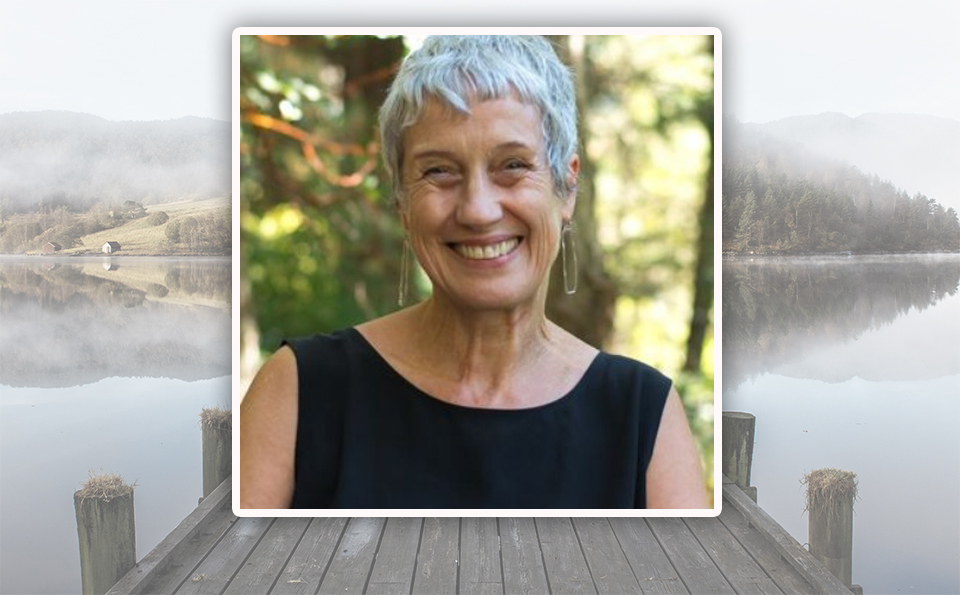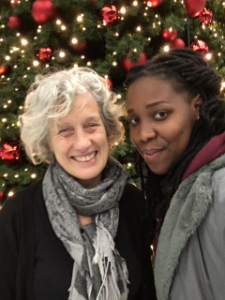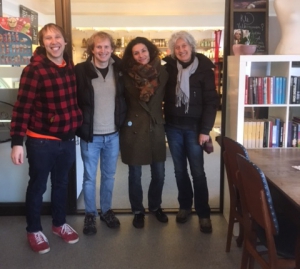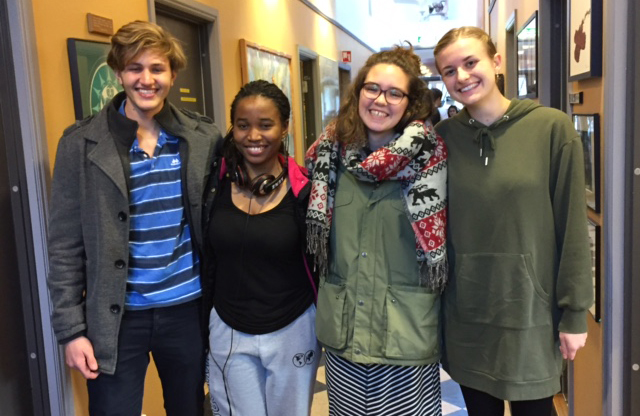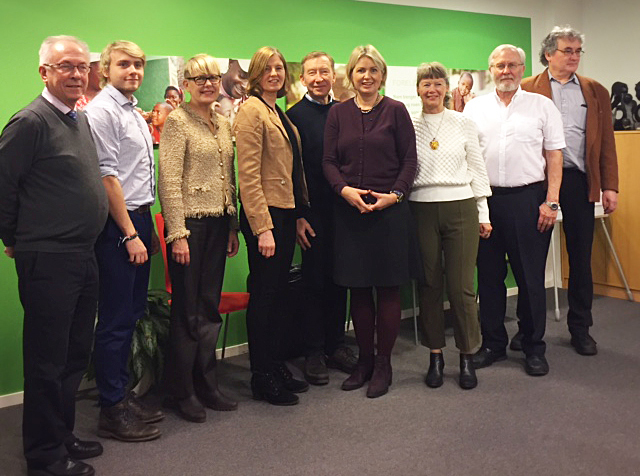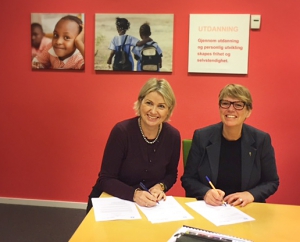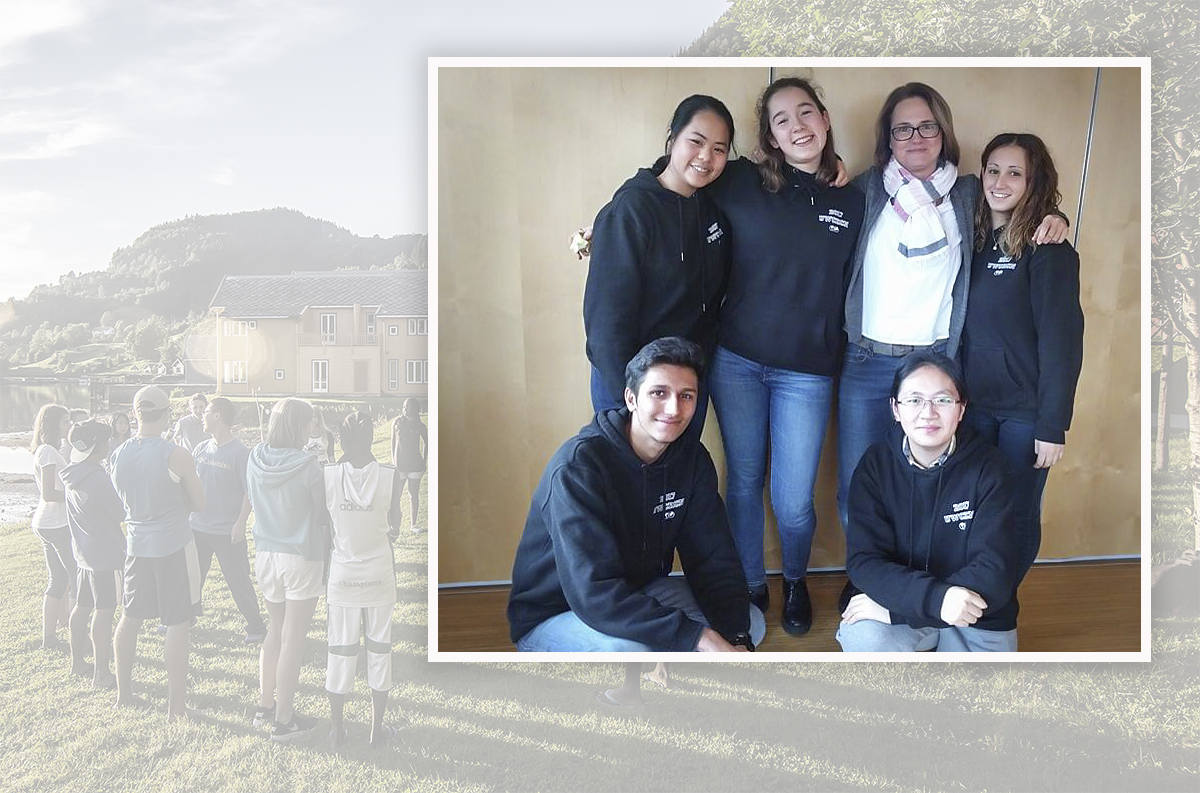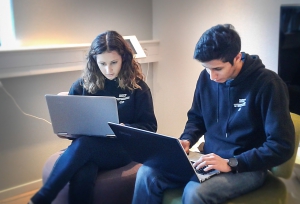Libby Mason
I first visited UWC Red Cross Nordic in the Spring of 2015, when I was doing a short tour of some UWCs in preparation for the UWC Pastoral Care Conference to be held at Pearson College in June 2016. It was, for me anyway, love at first sight; love of the beautiful setting, of the campus design, the connection with the Red Cross, and the sense of a familial relationship with Pearson College, with which there has been so much cross-fertilization for many years in terms of personnel.
There are many similarities between our two colleges; the geography (water and forest), the “liberalness” of both Norwegian and Canadian culture, which allows for an atmosphere of minimal rules and maximum student agency, the surroundings, which invite outdoor adventures on land and water, and the size of the student body, which allows for a real village atmosphere on both campuses.
Other similarities: the atmosphere in the Kantina / Dining Hall; high energy, inaudible conversations and announcements, raucous singing of Happy Birthday, the feeling (at College Meetings at RCN and Village Gatherings at Pearson College) of this precious opportunity to be sharing space with our deliberately diverse communities; being in one room with 200 students and 30+ adults representing what the UWC is fundamentally about always stirs my heart, student-initiated events and performances; the European day at RCN was very similar to a Regional Day at Pearson, non-timetabled days focused on Global Concerns / Affairs. I was particularly struck by the quality of student presentations and workshops at RCN’s ‘Operasjon Dagsverk (Operation Day’s Work)’. It is often on such days that we see the unique brilliance of our UWC students.
It began to be the differences, however, that most interested me, and what both Colleges might learn from these differences, which I will try to summarise:
The Student Voice: at RCN the primary system for students to articulate their concerns is through an elected Student Council, their regular meetings with the Education Management Team and their membership of various committees, which have calendarized meetings. At Pearson College the primary system is the Village Gathering, at which any community member, adult or student, can have an agenda item discussed by the whole community. The former is more efficient and means that most issues of significance to students do at least get raised. The latter, however, means that lively discussions between all community members encourage us all to develop our skills of active listening, patience and compassion. I would argue that the Village Meeting, at its best, nurtures healthy inclusive dialogue between all students and all adult members of the community.
Student Safety: “Connect” at RCN is a wonderful system (similar to check-in at other UWCs) whereby every student has to connect with the adult on duty in their house every evening. At Pearson College the assumption is that all students and adult community members are keeping an eye out for each other, so no system is necessary.
Project / PBL Week: at RCN these are largely adult-led (with some wonderful projects: cheese-making with milk from a local farm, a “Silent Retreat” in a cabin for artists, musicians and writers, a visit to Bergen National Opera to work with their choirmaster are just a few examples). At Pearson, CAS and Project Weeks are more intentionally linked to the CAS program and are largely student-led and initiated, with adult supervision.
As I prepare to leave UWC RCN (hopefully to return as a visitor one day), I am overwhelmed with gratitude. Gratitude to Larry and the RCN management for having the crazy idea to have me work here for one term. Gratitude of course to Désirée and my colleagues at Pearson College for supporting me in coming here, despite the considerable inconvenience of finding a temporary replacement for me. And gratitude for the opportunity to deepen my sense of the connections between UWCs, to experience again the UWC as a movement in which we each play a part to help move the world towards a better place. I heartily encourage all colleagues and students at both (and other) schools to investigate the possibilities of further inter-College connections; exchanges, Professional Development visits, subject and theme-based conferences. Isolated we sometimes become absorbed in minutiae, stress and negativity; widen the lens and you will, like me, experience a boost of energy and commitment to this extraordinary movement.
Libby Mason, December 1 2017
For profiles and news of other students, alumni and friends of the College, click here.

